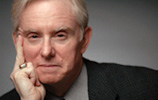In view of the current discussion about health care, I want to make two comments. They are not about a specific plan or political position. Rather, my perspective addresses fundamental issues that, to my way of thinking, are foundational. Of course, these comments refer to those who have accessible medical care.
First, it is my view that each citizen has a social and communal responsibility to care for her or himself. It’s not the physician’s job, it’s not the government’s job. It’s our responsibility to society and ourselves. It’s our job to be informed, to advocate for ourselves, to select the right doctor- no one else’s. It is our job to follow what our physician advises, provided we understand its rationale or, to work with the physician to develop a treatment plan that we are willing- with help- to put into action. It is not our role as patients to be taken care of in the sense of waiting passively for the physician or her or his office to reach out to us.
Second, the way medicine is taught and practiced in the U.S. renders it rather poorly prepared to treat chronic illnesses over the duration of the illness. When there are acute episodes of the illness or changes that are unexpected, medicine can respond quite well. However, for the long haul, it is the patient who must manage her or his disease in conjunction with a physician’s recommendations for self-care. This is particularly true for middle-aged and older adults: the interaction between a chronic illness and age-related changes is inevitable. So must be the assumption that we must be active participants in our own care.
Find the physician who wants to collaborate, who sees her or his responsibility as, in part, insuring that you can learn what your role is in your own care, and will hold you accountable. Sometimes we can’t follow a prescribed regimen: that’s not necessarily a failure on your part or the physician’s, but a real problem for you and your physician to work through (e.g. what are the obstacles to following a specific treatment plan?).
This is an adult approach to health care. The rest is wishful thinking and politics.
Thank you for reading this post.
If you find that my perspective on makes sense to you, and you are considering psychotherapy, send me an email or give me a call and we can schedule an appointment.
Contact Houston Psychologist Dr. Robert Reichlin at 281-813-7202 Drreichlin@robertreichlinphd.com
